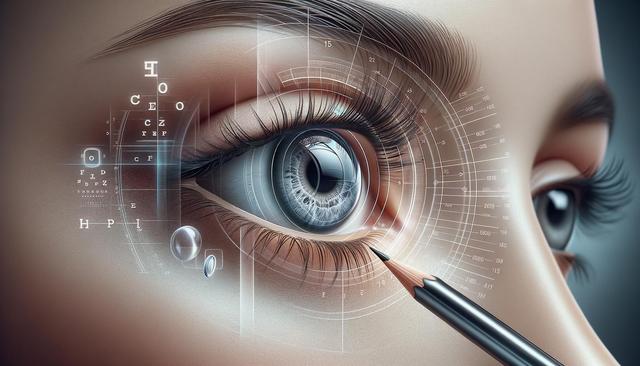Understanding the Causes of Blurred Vision
Blurred vision may arise from various underlying issues, ranging from temporary conditions to chronic diseases requiring long-term care. Common causes include refractive errors like nearsightedness, farsightedness, and astigmatism. Other potential contributors are dry eyes, eye strain, and infections. More serious causes include cataracts, glaucoma, and macular degeneration, which may require specialized macular degeneration eye treatment. In some cases, systemic health conditions such as diabetes or hypertension can affect vision, pointing to the need for comprehensive medical evaluation. Identifying the specific cause is the first step in determining the appropriate blurred vision treatment.
It’s important to differentiate between sudden and gradual vision changes. Sudden blurred vision may indicate a medical emergency, such as a retinal detachment or stroke, while gradual changes can be linked to aging or chronic eye diseases. Keeping track of additional symptoms like eye pain, floaters, or headaches can help healthcare providers diagnose the issue more accurately. When in doubt, it’s always safer to seek medical advice promptly.
Home Remedies and Lifestyle Adjustments
For mild or temporary blurred vision, several at-home remedies and lifestyle changes can offer relief. These approaches are most effective when blurred vision is caused by eye fatigue, dryness, or poor lighting conditions. Simple actions can go a long way in maintaining clearer vision and reducing daily eye strain.
- Follow the 20-20-20 rule: Every 20 minutes, look at something 20 feet away for 20 seconds to reduce digital eye strain.
- Stay hydrated and use artificial tears to manage dry eyes.
- Ensure proper lighting when reading or working on a screen.
- Take regular breaks during extended screen use or reading sessions.
Incorporating nutrient-rich foods into your diet, such as leafy greens, carrots, and fish high in omega-3 fatty acids, can contribute to long-term eye health. Some individuals also explore natural methods on how to improve eyesight in one month through exercises, relaxation techniques, and dietary changes. While results can vary, these practices may support overall visual well-being.
Medical Treatments and Professional Care
When home remedies are not sufficient, medical treatment becomes necessary. The approach depends on the underlying cause of blurred vision. For instance, corrective lenses like glasses or contact lenses address refractive errors effectively. In more advanced cases, surgical options such as LASIK or cataract surgery might be considered. If macular degeneration is the cause, targeted macular degeneration treatments involving medication or laser therapy may help slow disease progression.
Medical professionals may also recommend treatments that address systemic issues contributing to eye problems. Managing conditions like diabetes or high blood pressure can significantly reduce the risk of vision complications. In some cases, blurred vision may be a symptom of a more complex issue, and prompt diagnosis is critical to prevent lasting damage.
Specialists in the treatment of eye disease can perform comprehensive eye exams and imaging tests to identify the root cause of the issue. Regular checkups are especially important for individuals over 40 or those with a family history of eye conditions. Early intervention often leads to better outcomes and preserves vision quality.
Preventive Measures for Long-Term Eye Health
Preventing blurred vision often involves adopting consistent eye care habits and making informed lifestyle choices. While not all causes can be entirely avoided, certain steps can minimize the risk of developing vision problems over time. These measures also support treatments already underway and enhance their effectiveness.
- Wear sunglasses that block UVA and UVB rays to protect your eyes outdoors.
- Maintain a balanced diet rich in vitamins A, C, and E, as well as zinc and lutein.
- Stop smoking, as it increases the risk of macular degeneration and other eye diseases.
- Manage chronic conditions like diabetes, which can lead to diabetic retinopathy.
- Keep your prescription lenses updated and attend regular eye exams.
Incorporating these habits into your routine can help maintain vision clarity and prevent common eye issues. Additionally, those exploring how to improve eyesight in one month should consider combining these habits with eye exercises and a nutrient-focused diet to support overall eye health.
Knowing When to See a Doctor
While many cases of blurred vision can be managed at home or with minor medical interventions, there are situations where immediate professional care is necessary. Recognizing warning signs can make a significant difference in protecting your vision and overall health. Seek prompt medical attention if you experience:
- Sudden or severe vision loss
- Persistent pain or redness in the eyes
- Flashes of light, floaters, or a dark curtain over your vision
- Double vision or difficulty focusing
- Frequent headaches associated with vision changes
These symptoms can indicate serious underlying problems such as retinal detachment, acute glaucoma, or neurological issues. Early diagnosis and treatment of eye disease are crucial to prevent further deterioration. If you are undergoing macular degeneration eye treatment, regular follow-ups with your eye specialist are essential to monitor progress and adjust treatment plans as needed.
Even outside of emergencies, it is wise to schedule annual eye exams, especially if you wear corrective lenses or have risk factors for vision disorders. Consistent monitoring allows for early detection of conditions that may lead to blurred vision and helps ensure that any treatment of eye disease is both timely and effective.
Conclusion: Taking Control of Your Vision Health
Managing blurred vision requires a proactive approach that combines understanding the potential causes, exploring effective remedies, and knowing when to seek medical intervention. Whether it’s through lifestyle changes, home care, or professional treatments such as macular degeneration treatments, there are many paths to clearer vision. Regular eye exams, healthy habits, and attention to any changes in your vision can significantly improve your quality of life. If you’re exploring how to improve eyesight in one month, consider combining diet, exercise, and routine checkups for the most balanced approach. Prioritizing eye health today can help ensure lasting visual clarity for the future.

Leave a Reply